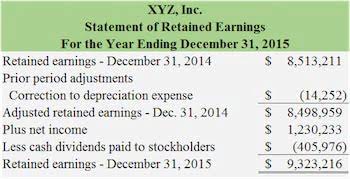
Financial advisors can use the financial data gathered by business accounting to help small business owners make important financial decisions about the future and day-to-day operations. Business accounting is typically for smaller businesses rather than large corporations. Small businesses may conduct their business accounting in-house or with an accounting firm, depending on the size and needs of the company. The core of business accounting is management, so most of the core elements involve steps to monitor things like cash flow, expenses, and inventory.
Consult a bookkeeper, accountant, or CPA
This is the final step before the preparation of the business’ financial statements. Business transactions are recorded in a journal (also known as Books of Original Entry) in a chronological order using the double-entry bookkeeping system. Investing in accounting software can make it easier to automate financial tasks, improve accuracy, compile data, produce reports, and comply with laws and regulations.

Time Management
Consider the Online Masters of Accounting (iMSA) offered by the University of Illinois Urbana-Champaign. A master’s degree in accounting will help you satisfy the semester credit hours required to become a licensed CPA. Your accounts payable balances are considered liabilities because that’s what you currently owe your vendors.

Accrual accounting method
Let’s assume I’m running a manufacturing company and decide to double my production — my costs for materials and labor would increase accordingly. These are variable costs because they rise and fall with the level of production. I like to remember equity as the difference between my business’s assets (what I own) and liabilities (what I owe). Whether you’re doing the accounting yourself or working with an external party, these phrases will come up. Talking the talk will help you make better choices for your business.

Progress Tracking

Cash flow refers to the total amount of cash that comes in (revenue) and out (expenses) of a company. The company can use this financial data for budgeting, forecasting, and making financial decisions. https://www.bookstime.com/ Cash flow statements include internal and external cash inflows and outflows over a certain period, which may include investments, financing, and operational costs.
- The IRS recommends that you organize supporting documents by year and type of transaction.
- Accounting helps a business understand its financial position to be able to make informed decisions and manage risks.
- An accrual would immediately recognize and record the cost of the contractor’s work, regardless of whether the contractor had actually submitted an invoice or received payment.
- Capital refers to the money I have to invest or spend on growing my business.
- Income statements focus on four key items — revenue, gains, expenses, and losses — which bookkeepers use to calculate net income.
- Accrual accounting provides a much clearer picture of both income and expenses for a specific period of time, but it can make it more difficult to manage cash flow properly.
It’s like a roadmap that helps me organize and categorize every financial transaction, making it easier to track and manage the company’s finances. Cash flow refers to the balance of cash that comes into and goes out of my business during a specific period. I keep track of this on a llc bookkeeping cash flow statement, which helps me see how well my company is managing its cash. Accounts payable is money that I owe other people and is considered a liability on my balance sheet. Here’s how that would be recorded in the financial records before that amount is paid out.
Does my small business need a CPA?
- These accountants make sure that a company’s accounting follows the Generally Accepted Accounting Principles, which I will describe below.
- For the past 52 years, Harold Averkamp (CPA, MBA) hasworked as an accounting supervisor, manager, consultant, university instructor, and innovator in teaching accounting online.
- With these basic accounting tips for small-business owners under your belt, we’re sure you have the tools you need for small-business success.
- Then, you can get back to doing what you love with confidence in your financial future.
- Another way accounting and bookkeeping differ is that accounting is a broader field that covers a more comprehensive range of topics.
Accounting software ranges in price from free to hundreds of dollars a month. And generally, no matter the plan or price, accounting software is more reliable than by-hand spreadsheet accounting. WLOH Radio Company has experienced unprecedented growth over the past decade.
Small Business Accounting Software

With that caveat in mind, here’s a quick overview of the two types—and which type certain businesses are legally required to use. Consulting part-time with a small-business bookkeeper or accountant can work nicely for newer, smaller businesses. But once your business is big enough that you can’t (or simply trial balance don’t want to) wrangle finances by yourself, it’s probably time to get a bookkeeper or CPA on your payroll. In accounting, you’ll come across certain titles which appear to bear similar duties but actually have unique job descriptions. In this section, we’ll briefly review the roles of accountants vs. CPAs and tax professionals.

Be First to Comment